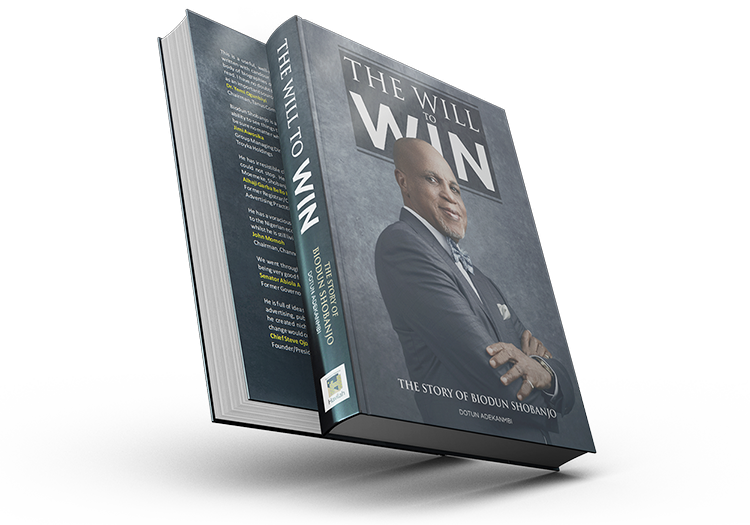

About the Book
The Will to Win: The Story of Biodun Shobanjo
By Dotun Adekanmbi
The book is fundamentally a deliberative evaluation of leadership and enterprise management. It is as much a biographical portrait of Nigeria’s Czar of Advertising as it is a story of the major developments in the world of marketing communication in Nigeria as it involves Shobanjo. It sheds light on his persona and gives a comprehensive overview of who he is.
Book your Copy
Posts by Dotun Adekanmbi
The Morning, I Was Afraid To Wake Up
I had a fitful sleep last night. The day had gone rather badly. For me, like several other Nigerians, Tuesday, October 20, began on a lousy note; a carryover from the sad developments of the Monday before it. Monday was the day it became too…
Mr President Made Me Eat My Word
Most of my friends know where I stand on matters of politics. I am an unapologetic sympathiser of the All Progressives Congress (APC) but I’m not a card-carrying member of the party. I also don’t wear my ‘loyalty,’ which is not blind, on my sleeves…
We Need to Learn From These ‘Lazy Youth’
Everything was wrong with France before the revolution: mass discontent, social disequilibrium, political conflicts, excesses of the ruling class and serious economic hardship signposted by the high cost of bread.Nigeria of 2020 is no different from France of 1789. In France, the anger of the…
Nigeria At 60: Not the Celebration But the Work Ahead
There is this apocryphal anecdote of the 40-year old who consulted a palmist. “In the first 40 years of your life I see extreme poverty,” the chirologist started out tentatively, as he studied the lines on the man’s palm. His tone of voice made the…
Obasanjo Might Be Right, But…
Former President Olusegun Obasanjo speaks with the magisterial arrogance of an oracle. Many Nigerians are likely to agree with this assertion. The only person of consequence that he has not spoken against is himself. Again, few will disagree because the retired General casts himself in…
NESG: From High-tables to Work-tables
It used to be the case that the Nigerian economy stood on an intellectual tripod that comprised the academia, the civil service and the private sector. All three legs did not, strictly speaking, work in tandem towards achieving a common goal. Whilst the professors theorised…
